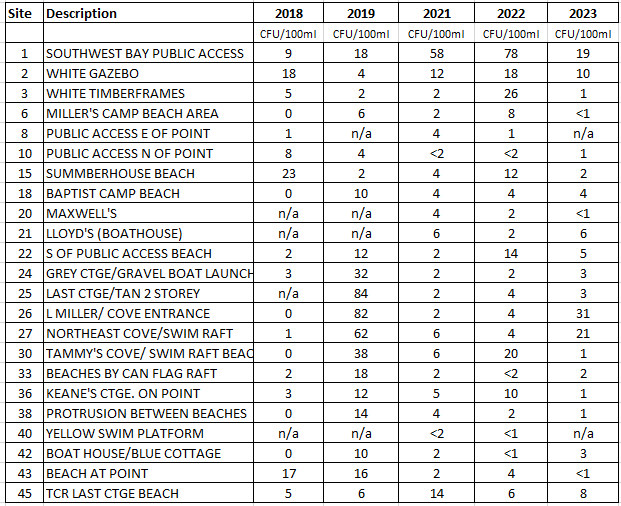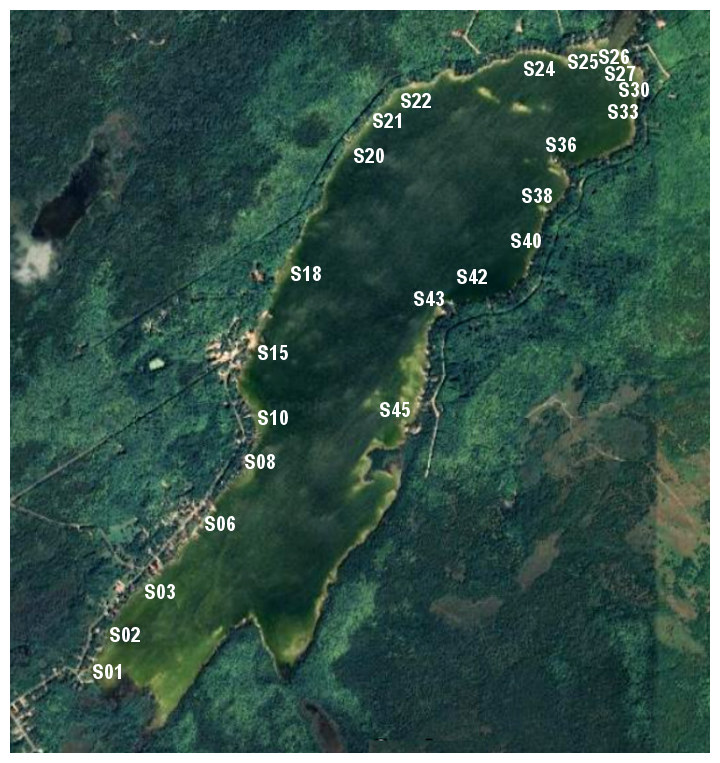The declining water levels in Miller Lake are the top concern on everyone's mind. Since our last AGM, a committee of volunteers under the direction of Daryl Emilio has been looking into this problem. This will be discussed further at the AGM.
On August 14, our Water Steward, Greg Keane, set out by himself to collect samples. He covered our regular 23 sample locations. Lab costs were funded by the Miller Lake Community Group; analysis by ALS Labs of Waterloo.
The good news is that E.coli levels have decreased in 2023. Once again, the highest levels are at the mouth to the bay at the northwest end of the lake. Most likely this is the result of prevailing winds; however, it may be run-off from activity higher up in the watershed. Regardless, the results are far below the provincial guidelines.
'Results' indicate parts per 100mL. Health Canada's guideline for issuing a swimming advisory is over 200 E.coli/100mL.
The Ontario guideline used to be more stringent - 100 E.coli/100 mL - but that was changed in 2018 to match the Federal guideline. There is a dispute about the safety of the current level, and the City of Toronto has stuck to the former Provincial guideline and closes beaches at 100 E.coli/100 mL.
Disclaimer: These samples indicate one point in time and do not guarantee safety, since water-fowl can contaminate water at any time.
To check the 2023 E.coli levels at your property, find your location on the map below and refer to the chart provided. The chart also lists previous readings in your area.


We continue to monitor E.coli levels in order to locate septic or run-off problems.